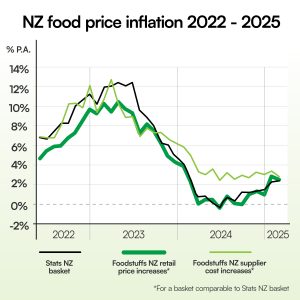Covid-19 was heralded as a golden opportunity for companies to sit back and move forward more sustainably.
Resetting sustainability is seen as the domain of every individual and every company, with the role of retail being crucial because of the breadth of its influence on human consumption.
So far, many stakeholders in the industry have come together to show their support for sustainability-oriented efforts. These include using surplus food, stabilizing shaky industries, promoting renewable energies, producing food that is free from genetically modified organisms, focusing on organic farming, using recyclable packaging, minimizing plastic consumption and making the most optimal Use of Australian resources.
Attempt to recycle soft plastic
Nestlé and the Australian recycler iQ Renew have launched an experiment in which soft plastics are collected by recycling on the roadside and diverted from landfill. The aim is to find ways to collect household soft plastic and turn it into a resource, thereby reducing the amount of that plastic that is landfilled.
The process began with 2,000 households on the NSW Central Coast and is expected to expand to around 140,000 households. Nestlé Oceania packaging manager Jacky Nordsvan told Retail World that within 24 hours of its announcement, the study "doubled twice, which is really exciting".
"This is proof of how dedicated consumers are to doing something in this area," she says.
Shaping and changing the trajectory of identified trends
Andrew Pooch, Managing Director of Tetra Pak Oceania, told Retail World that a pandemic can affect and change the trajectory of already identified trends.
Mr Pooch says the two most pressing consumer concerns over the past few years, environment and health, will continue to dominate trends, but the pandemic has strengthened and accelerated some of the existing trends.
Major consumer trends
Four key consumer trends identified in a recent consumer and retail study commissioned by the food processing and packaging solutions company are:
- Responsible consumption – where health and sustainability merge, including increased attention to hygiene and protection.
- Comfort reborn – with e-grocery and home delivery options that are becoming increasingly relevant.
- Heritage and origin – with a focus on authenticity, individuality and sustainability through the use of local references and culture.
- personal data – The focus is on organizations that personalize products and services, smart recommendations and seamless transactions in exchange for consumers who share their personal information.
According to Pooch, the focus is on the need to have access to safe and hygienic food despite the challenges in the supply chain.
"Safe and sustainable packaging will play a key role for food and beverage brands in the future," he says.
Read the full article in the November issue of Retail World here.




